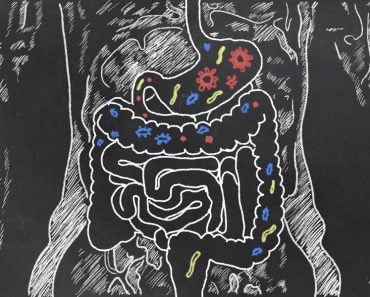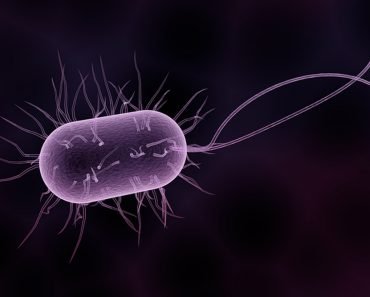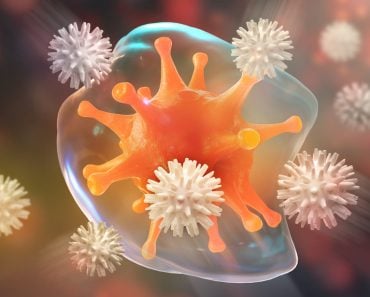Table of Contents (click to expand)
Our microbiome is composed of all the different microorganisms that live on or inside us, as well as their genes. They are vital for our survival. Scientists have found that our diet, lifestyle and even where we work can affect our microbiome.
Don’t be alarmed, but there are trillions of microorganisms living on and inside your body right now! Collectively known as microbiota, they are primarily composed of bacteria, along with viruses, fungi, a few protozoa (amoeba) and microscopic bugs; believe it or not, each one of us has our own unique blend. Together they form a relationship with our cells to create a well-coordinated mini-ecosystem inside our bodies!
The microbiome contains all the genes of all the microorganisms in your microbiota. On average, our microbiota has 200 times more genes than the human genome (all the genes in a human being).
Recommended Video for you:
Why Is It Important?
What scientists have found so far is that these microbial genes play a crucial role in our immunity, digestion, metabolism and brain function. That’s a large punch for critters so tiny that we can’t even see them with the naked eye.
These microorganisms usually exist inside our body in a harmonic balance that keeps us healthy. Disturb that balance and it leads to sickness and disease. The best thing you can do is make sure that all these microorganisms are happy, because when they’re happy, you will be too!
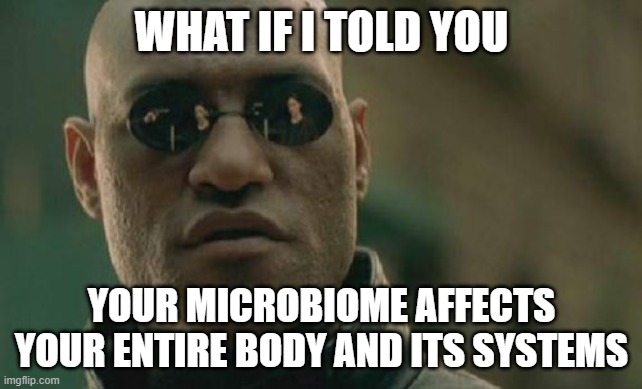
So, what are the factors that affect the microbiota, which in turn affect the microbiome?
Our Diet And Lifestyle
The food we eat, the antibiotics we take (if any), our sleep quality and exercise habits, and our vices like smoking and drinking all affect our microbiome in very complex ways.
Food
When it comes to our gut microbiome, there is no faster way to change it than eating right. Eating packaged food rich in sugar promotes the growth of undesirable bacteria, which makes our tummies upset. Switching to healthy food improves the growth of good bacteria, while simultaneously activating bacterial genes responsible for producing vitamin K. Without vitamin K, you’d probably bleed to death from a paper cut, as vitamin K helps to coagulate blood after a cut.
Stress
One study found that when we’re stressed for long periods of time, our gut microbiome changes. These changes can send our metabolism haywire and cause us to gain some weight, which no one likes to do unwillingly.
People You Live With
Interestingly, one study found that people who lived together had a more similar microbial community than those who didn’t live together. This suggests that sharing space somehow allows for sharing elements of our microbiota.
Epigenetics
Changes in the environment can impact our genes, which is known as epigenetics. Likewise, research has found that our genes can affect our microbiota, especially our gut bacteria, which in turn affect their genes (our microbiome).
For example, research found that our microbiome played an important role in certain kinds of RNA expression, especially long non-coding RNA, which is RNA that plays a pivotal role in various genetic processes.
Our microbiome forms at birth and changes as we grow older. The myriad of different microbes we come in contact with affect our genes by changing their expression. These changes in our genes affect the relationship between our cells and the microorganisms that live together inside our bodies.
However, genes don’t play as large a role as we’d expect, as even identical twins have dissimilar microbiomes.
Environment
One fascinating observation scientists have made is that even your place of work can affect your microbiome! Microorganisms are omnipresent, and in some places, they are more concentrated.
Depending on the environment in which you work, the bacteria you’re exposed to will be different. For example, if you work from home or sit behind a desk all day, there are a limited number of germs to which you’ll be exposed. If you’re a farmer or work in a mine or even in a commercial kitchen, then you’ll be bombarded with all different sorts of germs. Once again, the desk jockeys miss out on life’s diversity. Should you work in a lab, like many scientists, you may be exposed to unusual microorganisms not commonly found out in the world.
One study found some proof to validate this statement. The study found that rural farmers had a different microbiome than people who worked in cities.
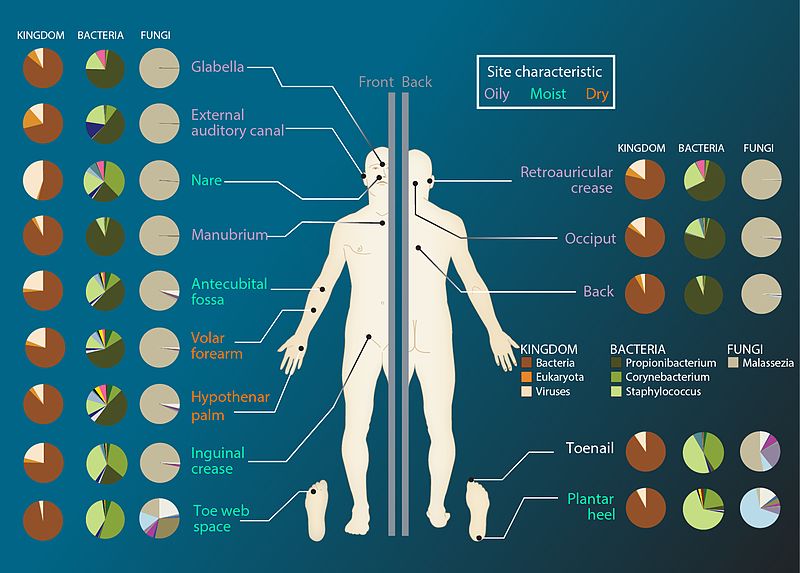
Another study found a change in the kind of microorganisms present in sailors’ mouths after spending 120 days at sea.
Very few studies like this have taken place to actually confirm these findings, and most of the studies I’ve just mentioned have happened on a very small scale.
Different Body Parts
Each body part has a different biogeography. This means that different microorganisms settle at different locations in the body based on what they like the most. For example, different areas on our skin will harbor different bacteria. The bacteria in our armpits will be different from those present between our toes.
Consider our stomach… it has a very strong and low pH, making it very difficult for microorganisms to survive. The small intestine, on the other hand, is slightly more alkaline, making it a more comfortable place for our microscopic friends to find shelter.
Even the bacteria inside our mouths can slightly change, depending on the food we eat. We can actually transfer these bacteria and share them with the people we kiss. How romantic!
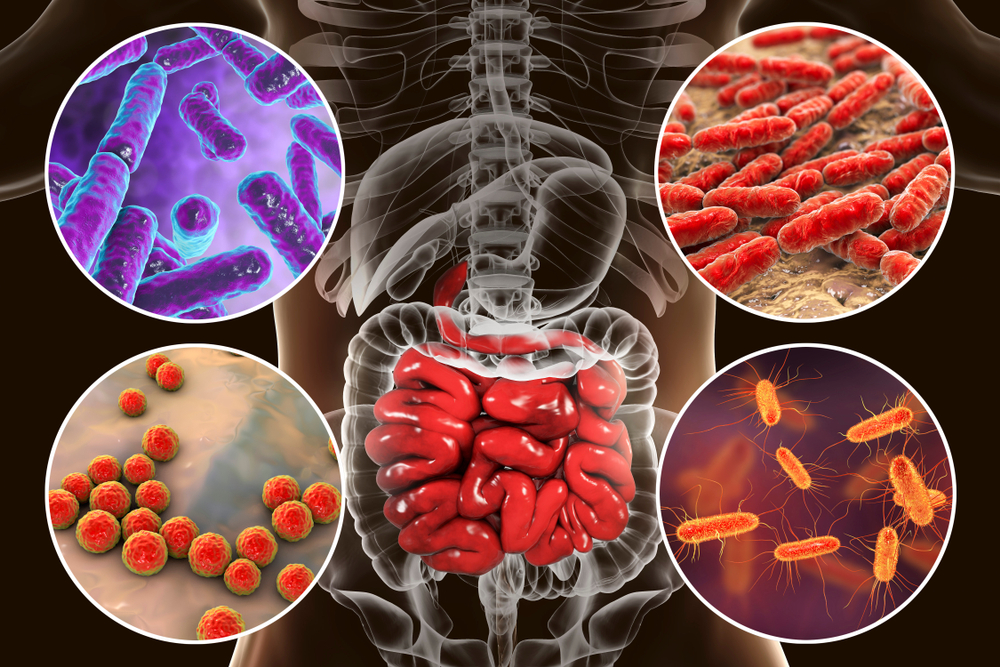
A Final Word
Our microbiome changes as we grow older. This is because of the various experiences to which we expose ourselves while we spend time on our big floating rock. The amount of interest doctors and scientists have in the microbiome is spiking in recent years.
This is because now, with advancements in research, especially the human microbiome project, the importance of having a healthy microbiome is coming to light.
Researchers are working day and night to understand more about our microbiome. With quicker and easier tools to identify what microorganisms are inside your body, we are getting to the answers we want faster than ever before. In fact, there are companies out there that can sequence your gut microbiome from a stool sample for just over $100.
We still have quite a ways to go, but with a bit more time and effort, we’ll soon be able to unlock many more secrets that our microorganisms are hiding!
References (click to expand)
- Ursell, L. K., Metcalf, J. L., Parfrey, L. W., & Knight, R. (2012, August). Defining the human microbiome. Nutrition Reviews. Oxford University Press (OUP).
- The Microbiome | The Nutrition Source. Harvard T.H. Chan School of Public Health
- Lloyd-Price, J., Abu-Ali, G., & Huttenhower, C. (2016, April 27). The healthy human microbiome. Genome Medicine. Springer Science and Business Media LLC.
- Gilbert, J. A., Blaser, M. J., Caporaso, J. G., Jansson, J. K., Lynch, S. V., & Knight, R. (2018, April). Current understanding of the human microbiome. Nature Medicine. Springer Science and Business Media LLC.
- Goodrich, J. K., Waters, J. L., Poole, A. C., Sutter, J. L., Koren, O., Blekhman, R., … Ley, R. E. (2014, November). Human Genetics Shape the Gut Microbiome. Cell. Elsevier BV.
- Turnbaugh, P. J., Ley, R. E., Hamady, M., Fraser-Liggett, C. M., Knight, R., & Gordon, J. I. (2007, October). The Human Microbiome Project. Nature. Springer Science and Business Media LLC.



